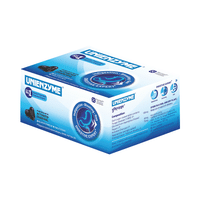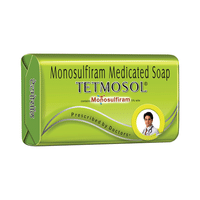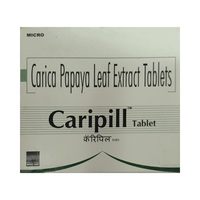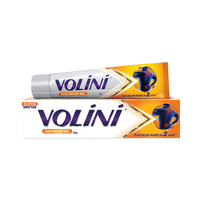Amicline Plus Tablet

Rs.95for 1 strip(s) (10 tablets each)
food interaction for Amicline Plus
alcohol interaction for Amicline Plus
pregnancy interaction for Amicline Plus
lactation interaction for Amicline Plus
food
alcohol
pregnancy
lactation
Amicline Plus Tablet is to be taken with food.
None
None
CAUTION
It is unsafe to consume alcohol with Amicline Plus Tablet.
UNSAFE
Amicline Plus Tablet may be unsafe to use during pregnancy. Although there are limited studies in humans, animal studies have shown harmful effects on the developing baby. Your doctor will weigh the benefits and any potential risks before prescribing it to you. Please consult your doctor.
CONSULT YOUR DOCTOR
Information regarding the use of Amicline Plus Tablet during breastfeeding is not available. Please consult your doctor.
CONSULT YOUR DOCTOR
SALT INFORMATION FOR Amicline Plus
Ornidazole(250mg)
Uses
Ornidazole is used in the treatment of bacterial infections and parasitic infections. It is used in infections of the brain, reproductive system, gastrointestinal tract, skin, vagina, and other areas of the body.
How it works
Ornidazole is an antibiotic. It kills the bacteria and other microorganisms that cause infections by damaging their DNA.
Common side effects
Sleepiness, Headache, Nausea, Vomiting, Dizziness, Vertigo, Tremors, Taste change, Dryness in mouth, Loss of appetite, Diarrhea, Metallic taste, Stomach pain/epigastric pain, Decreased white blood cell count (lymphocytes), Abnormal liver function tests, Rigidity, Seizure, Skin reaction, Fatigue, Itching, Jaundice
Diloxanide(375mg)
Uses
Diloxanide is used in the treatment of worm infections and intestinal amoebiasis.
How it works
Diloxanide belongs to the class of medications called luminal amoebicide. It acts inside the bowel (lumen of the bowel) to kill the infection causing amoeba.
.Common side effects
Nausea, Abdominal pain, Vomiting, Itching, Loss of appetite, Flatulence, Decreased appetite, Red spots or bumps, Diarrhea, Skin rash
SUBSTITUTES FOR Amicline Plus
No substitutes foundExpert advice FOR Amicline Plus
- Ornidazole treats infections caused by bacteria and parasites.
- It may also be used to prevent infections following surgery.
- Always take the complete course of treatment, as advised by your doctor, even if you feel better.
- It may cause side effects like nausea, stomach upset, and a metallic taste in the mouth.
- Ornidazole used in a high dose or for a prolonged time increases the risk of side effects such as nerve damage. Take it only as prescribed by your doctor.
- Do not drink alcohol during or for 2-3 days after treatment with this medicine. You may develop nausea, vomiting, flushing and headache.
- Inform your doctor if you have liver disease. Your dose may need to be adjusted in severe liver disease.
Frequently asked questions FOR Amicline Plus
Ornidazole
Q. What is Ornidazole?
Ornidazole belongs to a group of medicines called antibiotics. It works by killing the harmful microorganisms that can cause bacterial infections and parasitic infections. It is used in infections of the brain, reproductive system, gastrointestinal tract, skin, vagina, and other areas of the body.
Q. Is Ornidazole safe?
Ornidazole is safe if used in the dose and duration advised by your doctor. Take it exactly as directed and do not skip any dose. Follow your doctor's instructions carefully and let your doctor know if any of the side effects bother you.
Q. How is Ornidazole administered?
Ornidazole should be administered under the supervision of a trained healthcare professional or a doctor only and should not be self-administered. The dose will depend on the condition you are being treated for and will be decided by your doctor. Follow your doctor’s instructions carefully to get maximum benefit from Ornidazole.
Diloxanide
Q. Is Diloxanide furoate an antibiotic?
Yes. Diloxanide furoate or Diloxanide is luminal amoebicidal agent used in the treatment of infections of the intestine caused by amoeba (a type of organism)
Q. Is Diloxanide furoate banned?
Diloxanide furoate or Diloxanide is banned by the United States Food and Drug Administration (US FDA)
Q. What is Diloxanide furoate?
Diloxanide furoate or Diloxanide belongs to the class of medications called luminal amoebicide that acts inside the intestine to kill infection causing amoeba (a type of organism)






















